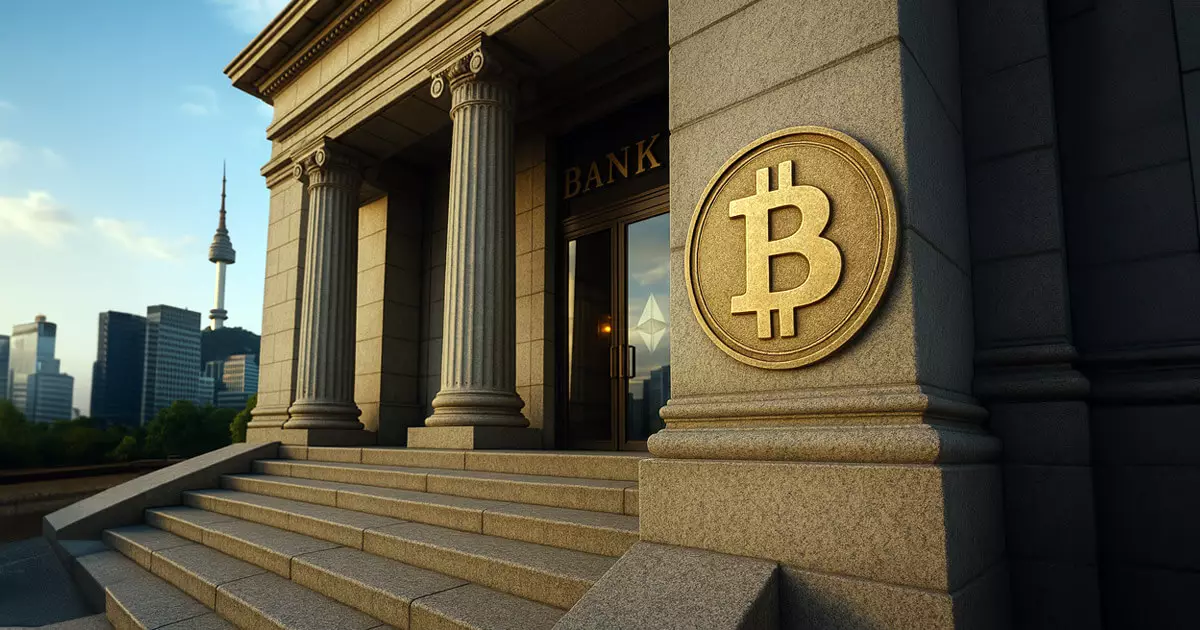The cryptocurrency landscape is evolving faster than ever, demanding adaptive regulatory frameworks that can keep pace with innovation. South Korea’s decision to enforce a one-bank-per-exchange policy, initiated in 2018, was intended to enhance anti-money laundering protocols, but rather than fostering growth, it appears to have stunted it. The banking sector, represented by leading executives from institutions like Woori Bank, has recognized that this regulation confines their ability to partner with multiple exchanges. Now, they’re clamoring for change, and rightly so.
The singular alliance between a bank and an exchange restricts customer options. Imagine running a business where you’re limited to a single supplier; it’s a recipe for stagnation. The rigidity of the current system means that exchanges are over-reliant on their banking partners, resulting in a narrow array of services for consumers. This can only lead to frustration and dissatisfaction, particularly when users observe that their global counterparts benefit from more flexible arrangements.
Enhancing Customer Choice and Competitive Dynamics
In any market, competition spurs excellence, providing better options for customers. The financial landscape in South Korea is no exception. By revisiting the one-bank-per-exchange rule, banks would be better positioned to collaborate with various crypto exchanges, effectively increasing customer choice and driving down costs. The argument made by Woori Bank’s CEO, Jeong Jin-wan, about this limitation is both straightforward and compelling—empowering multiple banks to partner with a single exchange fosters a sense of resilience and flexibility crucial for modern finance.
Opportunities for innovation are stifled as exchanges bog themselves down with the demands of one banking partner. Instead of thriving through diverse offerings, banks and exchanges have become complacent, adhering to a restrictive model that benefits no one. Allowing multiple banking relationships would encourage each financial institution to refine their offerings to capture market share, ultimately benefiting consumers with improved services and lower fees.
Risk Management and Systemic Vulnerability
The existing policy not only limits consumer options but also inflates systemic risk. The scenario highlighted by a South Korean lawmaker regarding Upbit’s reliance on K Bank for a significant portion of its deposits exemplifies this perfectly. If Upbit experiences operations issues, it could trigger a liquidity crisis for K Bank, which is not just a concern for the bank but a potential economic flashpoint for the entire sector.
Rethinking the crypto banking relationship would distribute risk across a wider array of financial partners, creating resilience designed to weather market fluctuations. In an era marked by volatility, this strategy could mitigate crises and bolster consumer confidence in both exchanges and their banking counterparts.
The Demand for Regulatory Evolution
With voices from across the financial sector advocating for a reshaping of the existing crypto policies, the South Korean government finds itself at a critical juncture. The one-to-one rule has become an impediment, discouraging investment and innovation at a time when agility is of utmost importance. Critics of the current setup, including the banks, assert that these restrictions are out of touch with the fast-moving cryptocurrency market.
Policy evolution is essential not solely for the banks’ survival but for ensuring that South Korea remains competitive on a global scale. As nations worldwide cozy up to cryptocurrencies, a review of the existing framework could lead to invigorated growth, investment attractiveness, and technological advancements that ultimately benefit all parties involved. In this climate of financial transformation, keeping a rigid policy merely serves to hold back progress.















